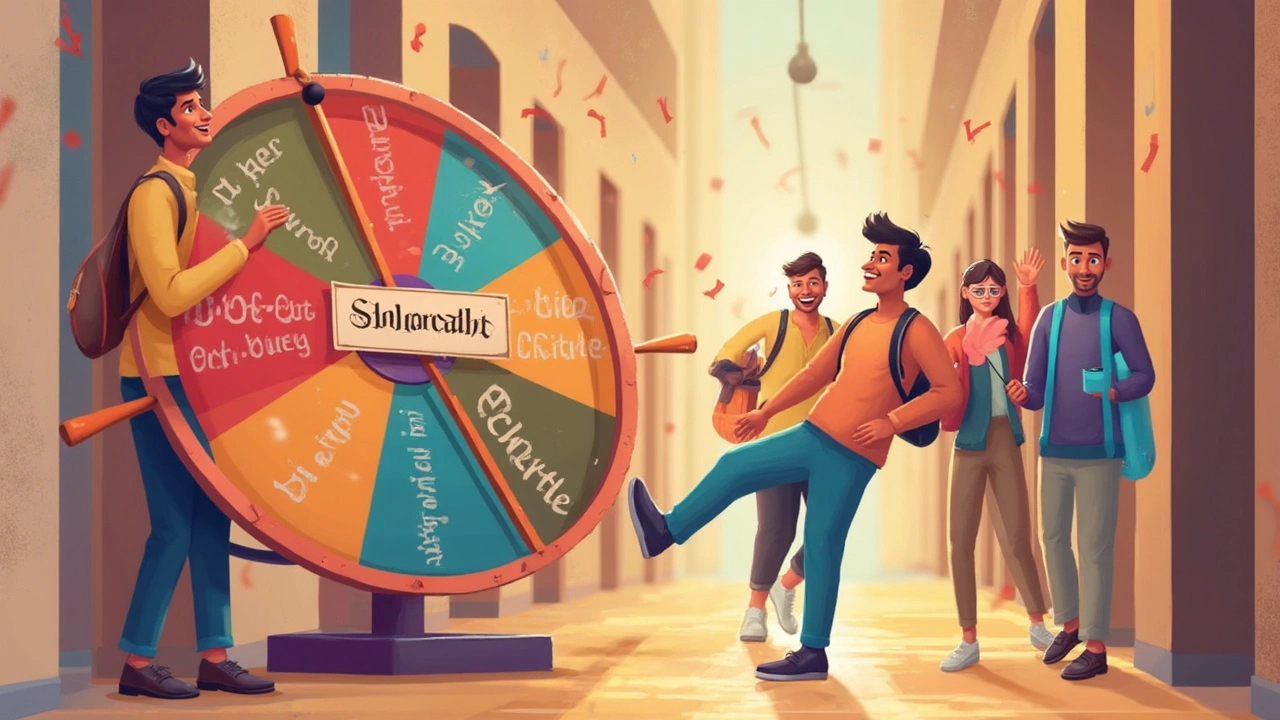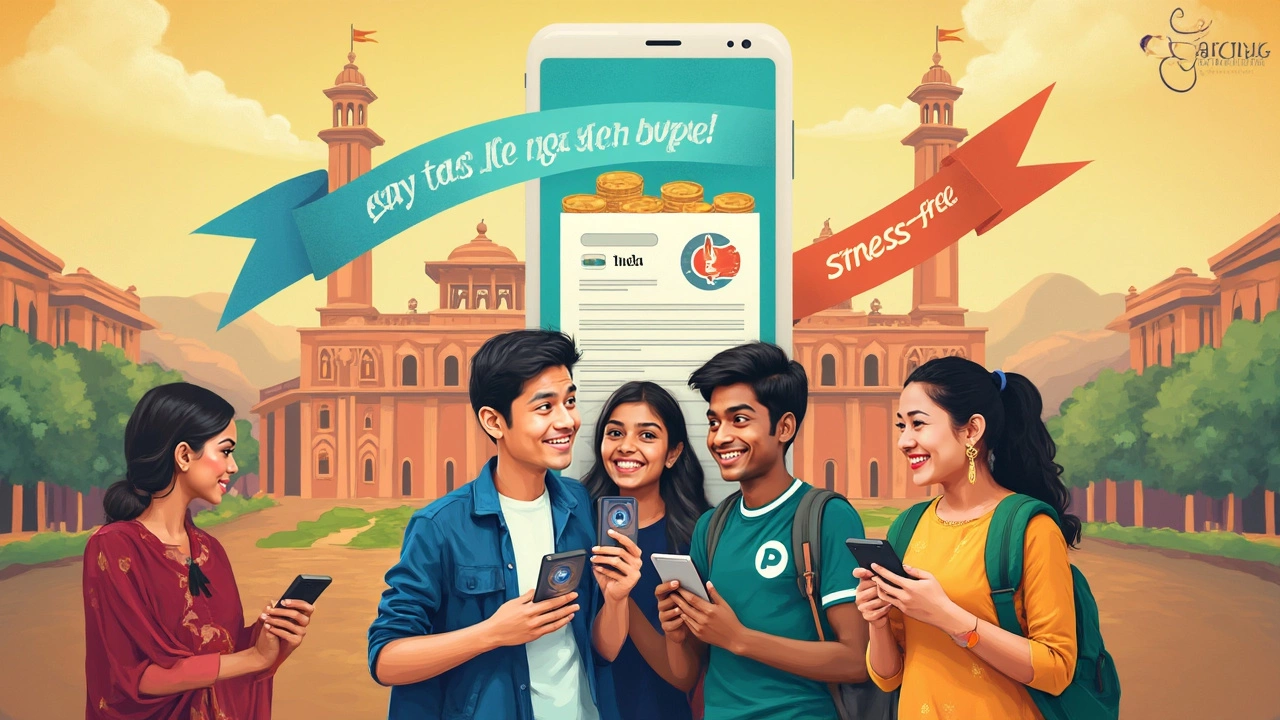If you’ve ever wondered if there’s such a thing as an easy scholarship, you’re not alone. I’ve been that mom staying up late, googling options for my kids, hoping to find something that doesn’t require a novel or a stack of paperwork.
Some scholarships really are easier to snag than others. It’s usually the ones with simple applications, few requirements, or just a bit of luck involved. Think no-essay scholarships or those random-draw sweepstakes prizes where you click a button, fill out a form, and cross your fingers.
But here's what nobody tells you: the easier a scholarship is to get, the more people go for it. That means less work, sure. But it’s kind of like trying your luck in a giant raffle. If you actually need the money (who doesn’t?), knowing where to look—and how to play smart—matters way more than just scrolling through endless lists online.
Stick around for real examples, inside tips, and hard-won advice on finding the easiest scholarships that are actually worth your time.
- What Makes a Scholarship 'Easy'
- Types of Easiest Scholarships
- No-Essay and Sweepstakes Scholarships
- Smart Ways to Increase Your Odds
- Things to Watch Out For
What Makes a Scholarship 'Easy'
Not all scholarships are equal in terms of effort. What’s considered easy is pretty simple: low requirements, fast application, and very little effort compared to all the formal essays and interviews you see in bigger, more competitive awards.
The easiest scholarship to get will usually have these features going for it:
- Minimal or no essay—some have no writing at all.
- Little to no GPA requirement—often, they don't ask to see your grades.
- No lengthy forms—usually, just your name and maybe a short answer.
- Very inclusive—open to most students, regardless of major, background, or school.
- Quick application process—some literally take 5 minutes or less.
A scholarship from niche.com, for example, just asks for your contact info each month for a $2,000 draw. The fact that you have to do almost nothing makes it simple, but it also means tens of thousands of students enter every time.
Here’s some real data on what makes a scholarship easy or hard:
| Scholarship Type | Average Application Time | Typical Number of Applicants |
|---|---|---|
| No-Essay Sweepstakes | Under 10 minutes | 50,000+ |
| Short Essay (less than 300 words) | 30 minutes | 8,000–20,000 |
| GPA-based/Achievement | 45–60 minutes | 2,000–10,000 |
So, yes—less work means more competition. Sometimes, tougher scholarships are actually easier to score, just because fewer people go after them. That’s why understanding the real meaning of "easy" matters so much.
Mark Kantrowitz, a noted scholarship expert, once said:
“The smaller and more specific the eligibility pool, the easier it is to win.”So, maybe the secret is less about avoiding effort and more about picking the right fit. Sometimes, just writing a basic essay puts you ahead of 90% of the crowd who won't even try.
Think about what makes the scholarship accessible for you, but also weigh how many other people are thinking the same thing. More open means more competition—so always look for a mix of quick wins and scholarships that feel a bit more tailor-made for your story.
Types of Easiest Scholarships
When people talk about the easiest scholarship to get, they usually mean the ones with the least hassle—no long essays, no teacher recommendations, no high GPA drama. They pop up all over, but here are the main types you’ll see every year:
- No-Essay Scholarships: These are exactly what they sound like. You sign up, maybe answer a basic question (sometimes not even that), and you’re in. Sites like Niche and CollegeXpress run monthly $2,000–$10,000 no-essay contests. Millions of students apply, but hey, it only takes a minute.
- Sweepstakes and Lottery Scholarships: These are scholarships literally picked at random. Big names like ScholarshipPoints and Cappex offer these all the time. You earn entries by using their site, or simply filling out your contact info. No required GPA or test scores at all.
- Automatic-Entry Scholarships: Some colleges enter every applicant for merit money just for applying. No extra forms or essays. Schools like University of Alabama and Arizona State are known for openly publishing their GPA/test requirements for these awards, so you know your odds up front.
- Minority, Local, or Small Group Scholarships: These tend to fly under the radar because they’re for a tightly defined group—like residents of a single county, or members of a certain club. Fewer people apply, so your chances shoot up, especially if the application is short.
- First-Come, First-Served Scholarships: Some programs just want to give out money to the first hundred (or so) who meet simple requirements. These run out fast, but if you’re on the ball, getting in early is half the battle.
Here’s a quick look at how these “easy” scholarships stack up, so you get a sense of what you’re getting into:
| Scholarship Type | Estimated Odds | Average Award | Effort Needed |
|---|---|---|---|
| No-Essay | 1 in 10,000+ | $1,000–$10,000 | Almost none |
| Sweepstakes/Lottery | 1 in 25,000+ | $500–$5,000 | Zero to minimal |
| Automatic-Entry | 1 in 20 to 1 in 200 | $2,000–$20,000 | Just apply to the college |
| Local/Small Group | 1 in 50 to 1 in 500 | $200–$2,000 | Short form/criteria |
| First-Come, First-Served | Depends how fast you apply | $500–$2,500 | Minimal—speed matters |
The truth? The less work a scholarship is, the more people want it, so odds can get wild. If you want an edge, never ignore the local and small-group ones. Those can be where the magic happens with barely any competition.

No-Essay and Sweepstakes Scholarships
If you’re hunting for scholarships that don’t need hours of writing, no-essay and sweepstakes scholarships are the easiest place to start. These are designed so just about anyone can hit “submit” and get a shot. The catch? More people submit, so your odds can be low—but it’s super quick, so you’re not losing much time.
The most popular example is the Niche.com $2,000 No Essay Scholarship. They run this one every month. Anyone can apply—no GPA cutoffs, no recommendations, no essays. Just make a free account and press enter. Another one you’ll see a lot: the ScholarshipPoints $2,500 Monthly Giveaway. All you need to do is sign up and complete simple online activities (think: short surveys, polls, or games) for bonus entries. Sallie Mae’s $1,000 Plan for Success Sweepstakes is similar—just a quick online entry form and you’re done.
These scholarships sound almost too good to be true, so it’s normal to wonder if they’re actually legit. The sites I mentioned above have been around for years and stick to basic privacy rules. Just skip anything that asks for fees or weird personal information (like your bank account). A real scholarship will not need that.
Here’s how to make the most of these easy options:
- Set reminders to apply every month. These sweepstakes open over and over, so more entries means more chances—no need to stress about writing new stuff each time.
- Use a separate email just for scholarships. You'll get a lot of updates and promotions, and this helps keep your regular inbox clean.
- Bookmark legit sites like Niche.com, ScholarshipOwl, Cappex, Chegg, and Fastweb. These all list up-to-date sweepstakes and no-essay scholarships.
- Watch out for scams. If a scholarship wants money to apply, skip it. Real scholarship money never asks for a fee up front.
While these easy scholarships won’t guarantee you big bucks, they can score you a couple hundred or thousand dollars for almost no effort. If you’re applying to a bunch, treat it like playing the lottery—but at least one where you’re not wasting money, just a few minutes scrolling and clicking.
Smart Ways to Increase Your Odds
It might feel like winning an easy scholarship is pure luck, but there’s a ton you can do to stack things in your favor. Most students think it’s about blasting out as many applications as possible. Not true—you want to be smart, not just busy.
First thing? Don’t ignore the tiny, weird, or local scholarships. Most applicants never even find these, which means your odds jump way up. My neighbor’s kid snagged a scholarship from the local Rotary club just because he was one of only three people who applied. If you’re part of a club, religious group, or have a parent who works for a big company, ask if they offer their own awards—these get way less attention than national ones.
- Set up alerts on scholarship search sites like Fastweb or Scholly so you get notified when new, less-competitive ones open up.
- Always double-check your application details. Scholarship America actually found that about 14% of applicants get tossed for simple mistakes, like a wrong graduation date or missing signature.
- Apply early. A lot of scholarships cap entries or run out of funds before the official deadline.
- Don’t skip the optional extras. Some "easy" scholarships have an optional social media post or bonus essay you can turn in. Fewer people bother, so your odds just got better.
Here’s something most people don’t think about: Mix up the types of scholarships. Don’t just go for sweepstakes and no-essay awards. Also look for easy applications that require, say, a short TikTok, quick-answer questions, or just one paragraph—less competition, less effort, still decent payout.
| Type | Average # of Applicants | Typical Odds |
|---|---|---|
| National No-Essay Scholarships | 20,000+ | 0.005% |
| Local Club Scholarships | Under 100 | 5%+ |
| Employer/Membership Awards | 50 - 200 | 1% - 10% |
Big takeaway? Spend more time hunting for the lesser-known options and obsessively check for tiny mistakes on your forms. That’s how you increase your chance at landing the easiest scholarship and keep yourself out of those huge, unwinnable pools.

Things to Watch Out For
If you’re chasing after the easiest scholarship out there, you’ve got to be a little skeptical. There’s a lot of sketchy stuff floating around—fake offers, privacy invasions, and plain old wasted time. Here’s what you need to check before hitting “submit” on any application.
1. Scholarship Scams Love Easy Applications
Watch out for any scholarship that asks for a “processing fee” or “application fee.” Real scholarships never make you pay to apply. If you’re asked for banking details, a full Social Security number up front, or sensitive info before you know the organization is legit, back away fast. The Federal Trade Commission (FTC) even says one big red flag is “guaranteed” money—no legit scholarship can promise you’ll win.
2. Your Data Isn’t Play Money
A lot of those giveaway-style scholarships actually just want your info to sell it. Pay attention to the privacy policy. Are you cool with your phone blowing up and your email overflowing? That could happen if the sponsor is more interested in leads than helping students.
3. Read the Fine Print
Some of those fast-apply scholarships are really sweepstakes. You might win, but you probably won’t. For example, the Niche $2,000 No Essay Scholarship gets hundreds of thousands of applicants per cycle. You have to be okay with the odds being low.
4. Know If It’s Renewable or a One-Time Win
Don’t assume the money is coming your way every year. Most easy scholarships are a one-time deal. Always check if renewal is possible before you count on the money for more than one semester.
5. Look for Real Credentials
Is the scholarship from a school, a known company, or a government source? Good. If it’s some random site you’ve never heard of with zero reviews, double-check before doing anything else.
- Search for reviews or complaints about the scholarship name plus “scam.”
- Visit the official website of schools or organizations, and see if they really offer that award.
- Check the sponsor’s contact details. Real scholarships usually have an actual person you can reach.
| Red Flag | What To Do |
|---|---|
| Application fee is required | Don’t apply, it’s likely a scam |
| Asks for full Social Security Number | Apply only if it’s a trusted source (ex: FAFSA) |
| Too-good-to-be-true promises | Search for reviews and research sponsor |
| No organization or person to contact | Be cautious, contact them and verify |
Staying sharp cuts the risk of falling for a scam or wasting hours on awards nobody ever actually wins. Before you let anyone have your info, make sure you’re dealing with a real, trustworthy opportunity.





